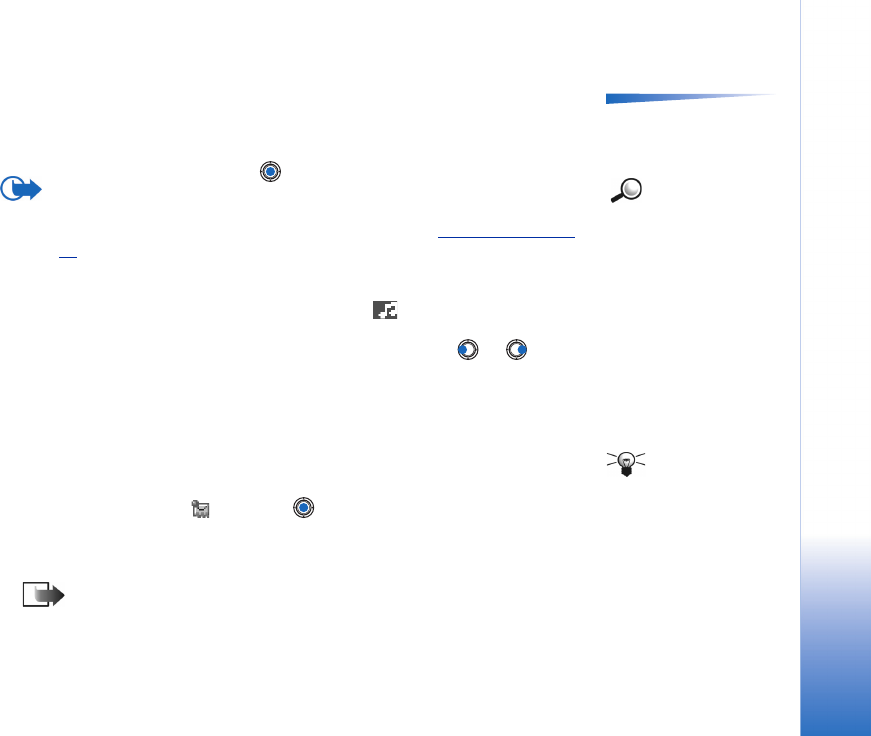
Copyright © 2003 Nokia. All rights reserved.
Messaging
83
Multimedia message objects
Options in the Objects
view: Open, Save, Send,
Help, and Exit.
• To see what kinds of media objects have been included in the multimedia message,
open the message and select Options→ Objects. In the Objects view you can view files
that have been included in the multimedia message. You can choose to save the file
in your phone or to send it, for example, via infrared to another device.
• To open a file, scroll to it and press .
Example: You can
open a vCard file and save
the contact information in
the file to Contacts.
Important: Multimedia message objects may contain viruses or otherwise be
harmful to your phone or PC. Do not open any attachment if you are not sure of
the trustworthiness of the sender. For more information, see ‘
Certif. management’,
p. 41
.
Sounds in a multimedia message
Sound objects in a multimedia message are indicated by indicator in the navigation
bar. Sounds are by default played through the loudspeaker. To stop the sound, press Stop
while sound is playing. You can change the volume level by pressing or .
• If you want to listen to a sound again after all the objects have been shown and the
playing of the sound has stopped, select Options→ Play sound clip.
Receiving smart messages
Tip! If you receive a
vCard file that has a
picture attached, the
picture will be saved to
Contacts as well.
Your phone can receive many kinds of smart messages, text messages that contain data
(also called Over-The-Air (OTA) messages). To open a received smart message, open Inbox,
scroll to the smart message ( ), and press .
• Picture message - to save the picture in the Picture msgs. folder in Images for later use,
select Options→ Save picture.
• Business card - to save the contact information, select Options→ Save business card.
Note: If certificates or sound files are attached to business cards, they will not
be saved.
• Ringing tone - to save the ringing tone to Composer, select Options→ Save.


















